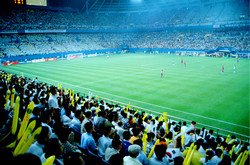What does football say about modern European society?
The EU-funded FREE(opens in new window) (Football research in an enlarged Europe: Identity dynamics, perception patterns and cultural change in Europe's most prominent form of popular culture) project set out to answer this and other questions in the framework of the sport as a prominent form of popular culture. Work centred around six main interlinked research themes. The first two looked at the history of the Europeanisation of football through competitions and the building of its collective memory. Results fed into the next two strands that focused on identity and perception issues as they are experienced and conveyed through football, and gender-specific attitudes and behaviour patterns related to football. The final strands studied the emergence of a European public sphere in football culture and the perception of football governance. Among the notable research activities were two extensive surveys carried out in eight Member States and Turkey. Using the findings from the historical, sociological and anthropological research themes as a basis, project partners delivered three policy briefs that provide recommendations. The first reveals that the European public sphere in football is still in its infancy, but it unites Europeans. The second shows that supporters are hesitant about the need for more regulation of football because of their distrust in governing bodies and institutions. The final brief deals with the marginalisation of women in what is a predominantly man's sport, calling for concerted efforts to include them. Thanks to FREE, Europeans are better able to understand the extent to which football pervades their daily lives. Citizens can also grasp how football has become what it is today and how it influences the way they see themselves and each other as Europeans.







